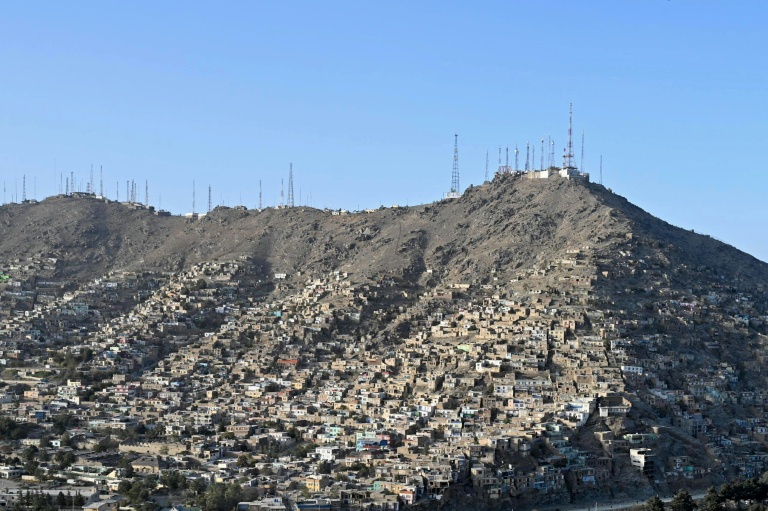World
Taliban Enforces Communications Blackout Across Afghanistan

Afghanistan is experiencing a significant communications blackout as the Taliban has cut internet and mobile phone services for a second consecutive day. This disruption began when authorities disconnected the fibre optic network, initially targeting high-speed internet in certain provinces earlier this month. The move, described by the Taliban as a measure to prevent “vice,” has left the country with minimal connectivity, with internet usage dropping to less than one percent of normal levels, according to the watchdog organization NetBlocks.
The communications disruption marks the first instance of such a comprehensive shutdown since the Taliban regained control in 2021 and implemented a strict interpretation of Islamic law. “We are blind without phones and internet,” expressed Najibullah, a 42-year-old shopkeeper in Kabul. “All our business relies on mobiles. The deliveries are with mobiles. It’s like a holiday, everyone is at home. The market is totally frozen.”
As the blackout progressed on the night of January 16, 2023, a government official warned that the fibre optic network would be severed, impacting mobile services nationwide. The official, who requested anonymity, indicated that “eight to nine thousand telecommunications pillars” would be affected, stating that the blackout would remain in place “until further notice.” He emphasized the extensive implications, noting, “There isn’t any other way or system to communicate… the banking sector, customs, everything across the country will be affected.”
According to NetBlocks, the blackout aligns with the “intentional disconnection of service.” This situation has left many Afghans feeling isolated. A 40-year-old Afghan residing in Oman, who chose to remain unnamed, expressed concern over the disconnection: “Because of the shutdown, I’m totally disconnected with my family in Kabul. I don’t know what’s happening; I’m really worried.”
The internet shutdown has especially significant ramifications in a country where telephone services frequently rely on internet connectivity. Over recent weeks, many regions have reported extremely slow or unstable internet connections. On September 16, 2023, Attaullah Zaid, a spokesman for Balkh province, announced the complete ban on fibre optic internet in the northern province, attributing the decision to the Taliban leader’s orders. “This measure was taken to prevent vice, and alternative options will be put in place across the country to meet connectivity needs,” Zaid wrote on social media.
Reports indicate similar restrictions have been applied in northern provinces such as Badakhshan and Takhar, as well as in southern regions including Kandahar, Helmand, Nangarhar, and Uruzgan. The Taliban’s actions stand in stark contrast to earlier promises made in 2024 when the Kabul government celebrated a 9,350-kilometre (5,800-mile) fibre optic network — largely established by previous US-backed administrations — as a means to integrate Afghanistan into the global community and alleviate poverty.
The current blackout raises profound concerns about the future of communication and commerce in Afghanistan, with many citizens fearing the long-term implications of such stringent measures. As connectivity remains critical for everyday life and economic activity, the Taliban’s actions may further isolate the nation from the rest of the world.
-

 Science3 months ago
Science3 months agoToyoake City Proposes Daily Two-Hour Smartphone Use Limit
-

 Top Stories3 months ago
Top Stories3 months agoPedestrian Fatally Injured in Esquimalt Collision on August 14
-

 Health3 months ago
Health3 months agoB.C. Review Reveals Urgent Need for Rare-Disease Drug Reforms
-

 Technology3 months ago
Technology3 months agoDark Adventure Game “Bye Sweet Carole” Set for October Release
-

 World3 months ago
World3 months agoJimmy Lai’s Defense Challenges Charges Under National Security Law
-

 Lifestyle3 months ago
Lifestyle3 months agoVictoria’s Pop-Up Shop Shines Light on B.C.’s Wolf Cull
-

 Technology3 months ago
Technology3 months agoKonami Revives Iconic Metal Gear Solid Delta Ahead of Release
-

 Technology3 months ago
Technology3 months agoApple Expands Self-Service Repair Program to Canada
-

 Technology3 months ago
Technology3 months agoSnapmaker U1 Color 3D Printer Redefines Speed and Sustainability
-

 Technology3 months ago
Technology3 months agoAION Folding Knife: Redefining EDC Design with Premium Materials
-

 Technology3 months ago
Technology3 months agoSolve Today’s Wordle Challenge: Hints and Answer for August 19
-

 Business3 months ago
Business3 months agoGordon Murray Automotive Unveils S1 LM and Le Mans GTR at Monterey









